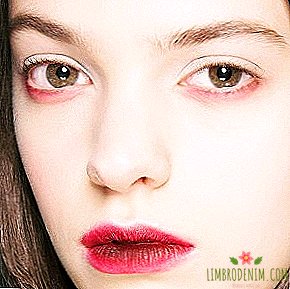No panic: Why the cold should not be treated
It may seem that medicine just stumbled over a cold. Organ transplantation has become routine, a new generation of effective drugs for cancer treatment has been created, but every winter we continue to sneeze, cough, wallow with fever, and effective treatment has not appeared. On the Internet, controversy is raging about whether to churn the temperature of the children, whether the new medicine helps with unproven effectiveness, whether it is possible to bathe a cold child. We understand what ARVI is, how modern medicine treats it, and why they are so afraid of colds in Russia.

What is a cold and is it related to cold
The condition, which in English sounds simple - “common cold” (common cold), in Russian is commonly called the abbreviation of ARVI - an acute respiratory viral disease. From decoding it is clear that the cold is acute (and not chronically), affects the respiratory system (respiratory system) and is caused by a virus. The situation is complicated by the fact that there are at least three hundred such viruses, and there are no specific antiviral drugs. Symptoms of SARS are known to everyone: snot, cough, sore throat, weakness, fever, which can be expressed more or less and manifest in different combinations.
Although the popular opinion is that the cold causes cold, there is no scientific evidence for this. The cause of ARVI is a virus, and the increase in colds during the cold season is explained by the fact that the environment is favorable for infection. Many people breathe the same air in a room with windows closed (that is, without adequate ventilation), transmitting viruses to each other, and heating contributes to the drying of mucous membranes. A couple of years ago, scientists were able to demonstrate more active reproduction of the rhinovirus in cell culture, cooled to 33 degrees, but it is not known whether this effect is observed in animals or humans and whether the nasal mucosa can cool to such a temperature in normal life.
Why different countries treat colds differently
The Soviet habit of treating a cold with something of a holy trembling has survived to this day. In Russia, the patient generally “likes treatment” and supports the vicious circle of ineffective prescriptions: it often seems to people that a good doctor must prescribe more medications. What kind of medicine is often a big question. Even an associate professor or a professor at a medical school can quite speak at lectures about treatment with methods lacking a scientific basis, such as homeopathy or urinotherapy.
Soviet medicine has cultivated the habit of many in calling an ambulance at a temperature of 39 degrees or going to the hospital "just in case." Being sick, we go to extremes: do not walk, do not bathe and sit at home until the symptoms disappear. In the West, the attitude towards diseases and their prevention is simpler. For example, in England you can observe how children in shorts and golf are taken out into the street to play snowballs. As a result of this approach, children quickly (in the first couple of years of life) exchange all possible viruses, are immunized, and gradually stop being ill.
If it was not possible to avoid infection, it is unlikely that they begin to sound the alarm. In Europe and America, snot and cough are not considered a disease, and children are taken to school after 1-2 days without fever. Having come to a Spanish kindergarten for the child, you can hear from the teacher: "It was 38, but since it did not rise to 38.5, we did not call and disturb you." In France, adults at a meeting kiss each other on the cheeks, and then they can confess that they have a cold. What to say about hospitalization - it is expensive and is available only if there are strict indications.

Is there effective prevention of SARS?
One type of ARVI is flu caused by a virus of the same name; flu can be severe and lead to serious complications (even death). But against the flu, unlike other colds, vaccines exist. It is the most effective means of preventing flu. Vaccination should be repeated annually, preferably in the fall. In Russia, the cost of vaccination is covered by the compulsory health insurance system, and in 2016, Moscow could be vaccinated at mobile vaccination points located around twenty-four metro stations. It is especially important not to forget about the annual vaccination, if you have children, elderly parents, if someone in the family suffers from chronic diseases. During pregnancy, it is also recommended to be vaccinated against influenza, if the vaccination season coincides with the second or third trimester. The vaccine is safe for pregnant women and protects not only the mother, but also the child for several months after birth.
There are no vaccinations against other acute respiratory viral infections, but they, fortunately, are not as difficult and dangerous as the flu. Considering that the main cause of the common cold is a virus, for prevention it is advisable to avoid cramped and poorly ventilated rooms with a large number of people. It is clear that for a person who uses the metro daily, this is a utopia, but at least at home (and, if possible, at work) you need to open windows more often and air the room. Do not forget about such basic aspects of a healthy lifestyle, as physical activity, quitting smoking, varied diet, adequate fluid intake, good hygiene (hand washing, use of disposable handkerchiefs), good sleep. Vitamin C does not prevent colds, although, according to some, can reduce its duration.
Is it necessary to treat a cold
It is known that a cold goes away after a week, if it is treated, and after seven days, if this is not done. A week is an average rate, and ARVI usually lasts from a couple of days to a week and a half, and there is no specific treatment (aimed at destroying the virus). But this does not mean that you can not alleviate your condition and reduce the severity of symptoms. The basics of treating a cold are rest, fluid intake, nasal washing with saline, or "sea water" sold in pharmacies (they are the same thing). Breathing facilitates humid and cool air, so it is worth more often to ventilate the room. Steam inhalations are good for moistening the mucous membranes, but should not be a torture like sitting above a pan of hot potatoes; just breathe above the humidifier or in the shower. Humidifier can save the mucous membrane of the nose and throat from drying out and increased susceptibility to viruses, and at the same time improve the condition of hair and skin. While studies have not demonstrated the positive effects of hot inhalations and sauna when you have a cold, it is known that cool, humid air relieves nasal congestion and cough.
Nonsteroidal anti-inflammatory drugs (NSAIDs), such as paracetamol and ibuprofen, are effective at high temperatures. It is believed that at temperatures up to 38.5 degrees, antipyretic can not be used. In the end, a rise in temperature is a sign of activation of the immune system, the body’s defense system. In children, the temperature can quickly rise even to 39-40 degrees, but if you can reduce it with paracetamol, then you can not worry; in the early days of a cold, fever may be persistent, and then paracetamol and ibuprofen are prescribed every four hours, alternating them. Very often, to reduce the heat, just undress and take a warm shower, and then allow the body to air dry. At the expense of the anti-inflammatory and analgesic effect, NSAIDs also alleviate symptoms such as headache and muscle aches.
It is important to fight dehydration, because when the temperature rises the body loses fluid. Doctors recommend drinking more water and clear liquids, such as tea, broth, apple juice. Temperature is at your discretion; cold drinks and ice cream do not complicate the course of a cold and even often contribute to the elimination of sore throat. But if warm tea with raspberries is the only thing that you can force yourself to use during SARS, drink it for health (especially as raspberries contain salicylates, aspirin derivatives). The main thing - to prevent dehydration.
With a stuffy nose, you can use oxymetazoline or xylometazoline based vasoconstrictor agents (like Otrivina or Nazivina), but they should be treated with caution. On the packaging of most of these drugs, you can now find a recommendation not to use them more often twice a day or longer than three days, and for children under six years old in Europe, vasoconstrictive drops and sprays are not allowed at all. Do not forget to flush your nose with saline. Antihistamine (antiallergic) drugs also help relieve swelling of the mucous membrane, which often causes nasal congestion. Many complex anti-cold remedies (like Fervexa in Russia and DayQuil in America) contain both NSAIDs, and antihistamine, and expectorant components. Such over-the-counter remedies are also safe during pregnancy provided they are taken in a short course.

What not to do with colds
Do not take antibiotics unless prescribed by a doctor. Antibiotics are used to treat bacterial, not viral infections, so they are at least useless for colds. Remember that the green color of snot does not indicate the bacterial nature of the infection, but is due to the accumulation of leukocytes. No need to try to strengthen the immunity of OTC "immunomodulators" or "immunostimulants." Interferons and other agents that affect the immune system are effectively used in such serious diseases as multiple sclerosis or melanoma. But the uncontrolled use of drugs "to strengthen the immune system" for colds in the best case will not bring benefits, and in the worst can harm the immune system.
No need to panic and call an ambulance, even if the high temperature in an adult or a child lasts for several days and decreases only for a while after taking antipyretic. This is a normal course of a cold in which the body actively fights against a foreign virus. It is necessary to ask for emergency care if the fever persists for more than five days, does not pass under the influence of NSAIDs, and also if you observe convulsions or dehydration in a child. Difficult breathing and wheezing are also a reason to consult a doctor. Try not to suffer ARVI, and especially the flu, "on your feet", because rest is one of the important conditions for a speedy recovery.
Photo: imagineilona - stock.adobe.com, krasyuk - stock.adobe.com, arck - stock.adobe.com





